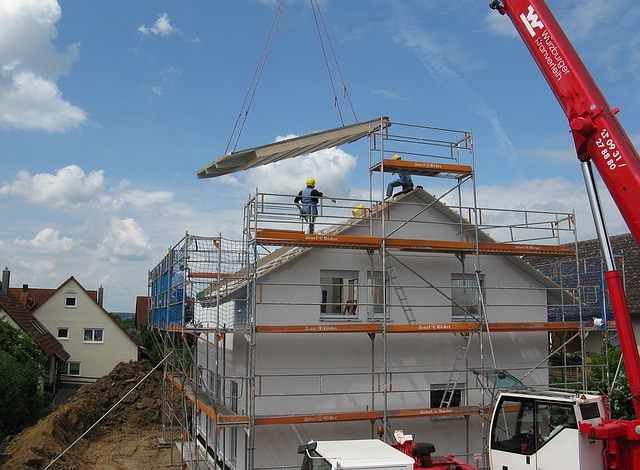
Revealed – three European countries seeing tremendous real estate growth
After several years of growth across all real estate segments, 2020 was anticipated to maintain this trend. Unfortunately, the Covid-19 pandemic put an end to these aspirations.
However, despite an economic crisis and restrictive measures imposed by governments, the real estate market in Europe is still considered to be the most attractive property investment region in the world. Before Covid-19 hit the continent, industry experts were targeting returns between 5% and 10% for their property investments in 2020.
 The impact of Covid-19 was huge in 2020 – some countries reported a year-on-year decline in residential real estate transactions of up to 80%. Construction activity was also affected and completely halted during the initial lockdown phase; in France, 90% of the work on construction sites was interrupted. Many countries saw interesting circumstantial changes, especially in the major cities. For example, apartments in Prague, Budapest, and Rome, which would have normally been rented by tourists, were placed on the long-term rental market, increasing the supply of
The impact of Covid-19 was huge in 2020 – some countries reported a year-on-year decline in residential real estate transactions of up to 80%. Construction activity was also affected and completely halted during the initial lockdown phase; in France, 90% of the work on construction sites was interrupted. Many countries saw interesting circumstantial changes, especially in the major cities. For example, apartments in Prague, Budapest, and Rome, which would have normally been rented by tourists, were placed on the long-term rental market, increasing the supply of
housing and leading to a decrease in rent.
Despite the impact of Covid-19, recent market trends arising from a number of countries indicate that there is room for growth. Let’s examine three countries across the continent that are showing promising developments in the European real estate market.
France
The French residential property market has been on a positive curve since 2016 and the country is also witnessing an increase in the number of homes being built, which is expected to continue at 3.6% up to 2022 and beyond.
France is fortunate to have a low-interest rate policy, carried out by the European Central Bank, and has introduced 10 Billion euros worth of tax cuts and further initiatives to revitalize the new build property market. In spite of the reduced demand for housing during the start of the Covid-19 outbreak, house prices rose by 3.7% last year overall. This price increase was also seen throughout the rental market, where demand remained high, particularly in Paris.
The French capital is still one of the hottest locations for real estate investment as demand outstrips supply for rental properties. Its international prestige and liquidity make it a great place to invest, particularly in apartment properties where prices rose by 6.4% in 2020. Construction is also currently underway on a 35 billion euro transportation project, which includes 200km of new metro lines, 68 new stations, and aims to transform the city into a 21st-century metropolis.
Germany
France’s neighbour, and European powerhouse, has been blessed with a decade of economic growth, an influx of immigration, and record-low unemployment – the optimal mix for the real estate market to flourish. Germany is one of the few countries where property has somewhat escaped the effects of the Covid-19 pandemic and prices are continuing to rise.
In fact, according to Deutsche Bank, prices on existing homes have risen by 123.7% on average in the seven major cities over the last ten years. However, this has priced many young people out of the market, particularly in Berlin, where the population has rapidly increased and there are not enough units to keep up with demand. At the same time, the average rental price for the capital city is only 9.1 euros per square metre, comparable to smaller cities in Europe such as Lodz (9.26 euros per square metre).
Germany also has the largest housing stock of anywhere in Europe with 42.5 million homes, which are also relatively affordable, given the country’s average annual salary – you can buy
a standardised dwelling for roughly five times the average annual salary.
Czech Republic
Looking over to the eastern side of Central Europe, the Czech Republic has a rapidly developing real estate market even with lockdowns. Prior to Covid-19 restrictions, transactions and prices of residential properties were increasing year-on-year for the majority of the regions of the country.
Led by rising prices of apartments in Prague and Brno, the national sales price of housing increased by 15.4% in 2019. Furthermore, after the initial lockdown caused by Covid-19, the residential real estate market made a significant recovery in the third quarter of 2020, with the average selling prices of Czech apartments increasing by 4.9%. Take-up in the office market was also relatively subdued in the first half of 2019: “There are not too many new tenants coming to the city. It is always the same tenants moving around, so the demand is not that high for brand new offices. Like Warsaw, it is becoming more of a market for rented residential, and there are companies developing apartments for lease.”
Despite increasing prices in the Czech Republic, rent is still much lower than the majority of countries in Western Europe, while net rental yields are still close to (3.14%). These factors help explain why the Czech Republic is experiencing large growth in the property market. The country is also lucky to have a beautiful capital city full of rich history and character, making it a very popular tourist destination. There has been a slowing of new developments in the city, particularly in the commercial property market, as there isn’t much demand for new offices at the moment – the Covid-19 pandemic has stopped the steady influx of new tenants.
However, according to a survey from PwC, the real estate market in Prague is categorised as having good prospects for 2021. These three countries offer the best representation of real estate growth in Europe, due to both existing infrastructure and positive emerging trends.
Germany has seen increased housing prices over the last decade and a large demand for affordable housing will buoy the market for years to come. With its low-interest-rate policy and high demand for properties in the major cities, France remains a solid option for investment in 2021. Lastly, the Czech Republic has quietly become a burgeoning force in the European real estate
market. High rental yields, which are comparable with some of the bigger European economies, make the country an attractive proposition.